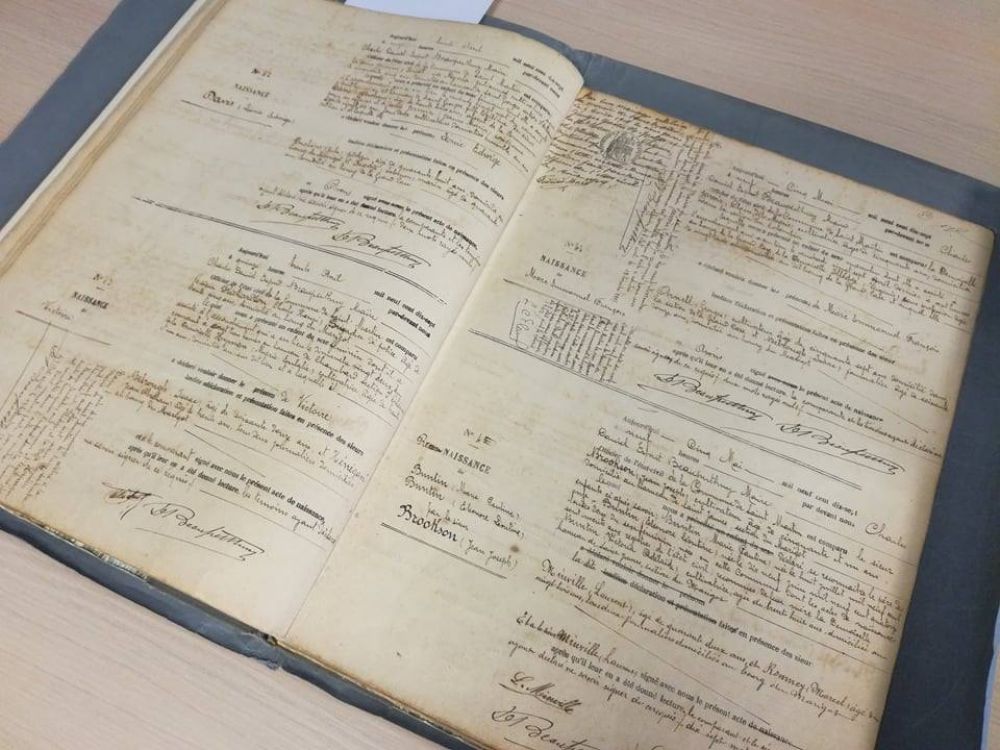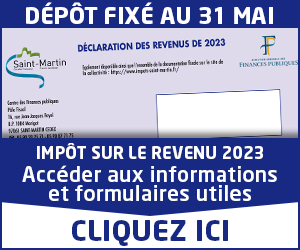Genealogical research, “a journey in time”
Since their opening in December 2014, the territorial archives of Saint-Martin have welcome 678 readers for 3,200 archived documents. Today, genealogical research accounts for 80% of applications.
For example, in 2016, 339 people visited the archives room for genealogical research. In total, they consulted 1350 documents. "Demand is increasing," says Stephanie Dargaud, the Director of Territorial and Heritage Archives.
In addition to that the administrative demand (notaries, genealogist’s offices) increased by 81% last year.
Public Diversification
Genealogical research is a project that allows you to find your ancestors. You can find your ancestors and all their relatives. “It’s a very ancient science. In the 16th and 17th centuries, we practiced it essentially to establish your lineage and prove your noble affliction. Today, its development is spectacular and has been gaining renewed success from the public in the last 20 years.” says Stephanie Dargaud. Until the end of the 1990s, genealogy was often a pass-time for retired people because it was time consuming to consult different sources. Now she attracts more and more young people. Research has been facilitated since the archival public services have invested a great deal of time and resources in the digitization of civil registers and the development of new technologies that allow access to them anywhere and when desired.
The Different Sources
There are different types of documents that allow you to find your ancestors. Civil registers constitute the main source. There you can find the date and place of birth, marriage and death, addresses and sometimes the place they gave birth, as well as the occupation, not only of the parent but also the witness. Also sometimes other elements exist in the marginal notes (marginal entries) such as the date of recognition of children, references to a possible previous marriage ... which allow researchers to be referred to other sources. “Knowledge of places of birth is essential if people are born in Sint Maarten for example they will not show up in the civil registers of Saint-Martin. You have to know the first name of your ancestors and not just their nicknames” assures Stephanie Dargaud who mentions that the management of archives depend on each state and their legislation. The register of Saint-Martin are well kept, and you can see that the writing there is very diligent.
However, French legislation requires a period of 75 years to authorize the consultation of birth and marriage registers to individuals - while death registers are available immediately. Notaries are entitled to request these certificates, in particular in the context of estates.
Notary records are another source of genealogical research. They make it possible to understand the total composition of the households, their standard of living ... If an ancestor has applied for naturalization, information can also be found in the applications for nationality. If the ancestors have exercised certain professions (military, tradesman, or civil service) there are other sources for obtaining more information.
A journey through time
There are many paying platforms on the internet that propose access to sources or to genealogical trees that are already created, but for Stephanie Dargaud, “nothing is the same as doing your own research”. Archival services guarantee free consultation of reliable and authentic sources. Reception in the archives also allows questions and personal advice and guidance for their research.
In addition to the emotional aspect (the access to the original documents makes it possible to see the signature of an ancestor for example), this avoids the reading errors and false interpretations. "In Saint-Martin this accompaniment in the reading room is very important. The public is essentially English-speaking and we must explain the function of the French administration and the linguistic subtleties in order to allow people to become autonomous in their research and to extract the necessary and useful information, "she adds.
However, some circles or associations of certified genealogists may be useful. Especially when one has complex research to perform. Some people put themselves out as “genealogists” without the competence nor the accreditation necessary to consult certificates less than 75 years, risking the applicant having sometimes erroneous results. In addition to the different migrations and crossbreeding, the main difficulty in the Caribbean, and thus in Saint Martin, is to go back before the liberation of the slaves. There is, for example, no register of the slaves of Saint-Martin before 1848. It is therefore very difficult to find from what country or tribe one’s ancestors are from. It is necessary to compare different sources or to consult the website Genealogy and history of the Caribbean which since 1996 has carried out a work of counting historical works and registers of civil status. More generally, it was necessary to be Catholic to appear in the parish registers before 1785. After that date non-Catholics were registered. This is why the restoration of parish registers in Saint-Martin last November is very important.
To start genealogical research, regardless of nationality and origin of a person, is investigative work. “You know where you are departing but you do not know where you are going Like for a journey A journey in time You must be ready to confront other realities, stay humble and without judgment.” Stephanie Dargaud summarizes.








